
Discover the Vibrant Heart of West Jakarta
West Jakarta, an enchanting blend of history and modernity, offers tourists a rich tapestry of experiences. Known for its bustling markets, historic landmarks, and vibrant culture, this neighbourhood is a must-visit for those looking to dive deep into the essence of Jakarta. As you wander through its streets, you'll be greeted by a mix of old colonial buildings and contemporary establishments, painting a vivid picture of the area's evolution over the years. One of the key highlights of West Jakarta is the Old Town, or Kota Tua, where time seems to stand still amidst the preserved Dutch colonial architecture. Here, you can visit the Fatahillah Museum, which offers a glimpse into Jakarta's past, or simply enjoy a leisurely stroll through the cobblestone streets. The area is also home to numerous street performers and local artists, adding a lively atmosphere to your visit. Shopping enthusiasts will find a paradise in West Jakarta with its array of traditional markets like Pasar Pagi Mangga Dua and modern shopping centers such as Central Park Mall. Whether you're looking for unique souvenirs, high-end fashion, or local delicacies, there's something for everyone. Food lovers, too, will be delighted with the variety of culinary options available, ranging from local street food to upscale dining establishments. Despite its urban vibe, West Jakarta also offers pockets of tranquility, such as the beautiful Angke Kapuk Mangrove Forest. This natural haven provides a refreshing escape from the city's hustle and bustle and is perfect for a relaxing day out. With its diverse attractions and vibrant culture, West Jakarta promises an unforgettable experience for every traveler.
Local tips in West Jakarta
- Visit Kota Tua early in the morning to avoid crowds and enjoy cooler temperatures.
- Wear comfortable shoes as you'll be doing a lot of walking in markets and historic sites.
- Try local street food at Pasar Pagi Mangga Dua for an authentic taste of Jakarta's culinary delights.
- Carry some cash, as many smaller vendors and markets do not accept credit cards.
- Spend an afternoon at the Angke Kapuk Mangrove Forest for a peaceful retreat from the city.
Discover the Vibrant Heart of West Jakarta
West Jakarta, an enchanting blend of history and modernity, offers tourists a rich tapestry of experiences. Known for its bustling markets, historic landmarks, and vibrant culture, this neighbourhood is a must-visit for those looking to dive deep into the essence of Jakarta. As you wander through its streets, you'll be greeted by a mix of old colonial buildings and contemporary establishments, painting a vivid picture of the area's evolution over the years. One of the key highlights of West Jakarta is the Old Town, or Kota Tua, where time seems to stand still amidst the preserved Dutch colonial architecture. Here, you can visit the Fatahillah Museum, which offers a glimpse into Jakarta's past, or simply enjoy a leisurely stroll through the cobblestone streets. The area is also home to numerous street performers and local artists, adding a lively atmosphere to your visit. Shopping enthusiasts will find a paradise in West Jakarta with its array of traditional markets like Pasar Pagi Mangga Dua and modern shopping centers such as Central Park Mall. Whether you're looking for unique souvenirs, high-end fashion, or local delicacies, there's something for everyone. Food lovers, too, will be delighted with the variety of culinary options available, ranging from local street food to upscale dining establishments. Despite its urban vibe, West Jakarta also offers pockets of tranquility, such as the beautiful Angke Kapuk Mangrove Forest. This natural haven provides a refreshing escape from the city's hustle and bustle and is perfect for a relaxing day out. With its diverse attractions and vibrant culture, West Jakarta promises an unforgettable experience for every traveler.
Iconic landmarks you can’t miss
Taman Fatahillah
Explore the historic Taman Fatahillah in Jakarta, where history meets culture in a vibrant park setting, perfect for tourists and locals alike.
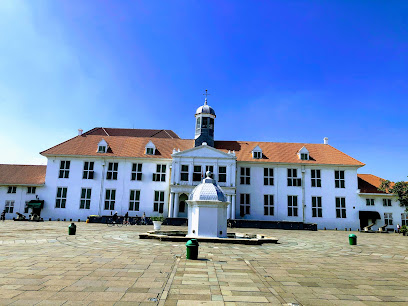
Jakarta History Museum
Explore Jakarta's past at the Jakarta History Museum, a captivating journey through Indonesia's rich heritage in a stunning historical setting.
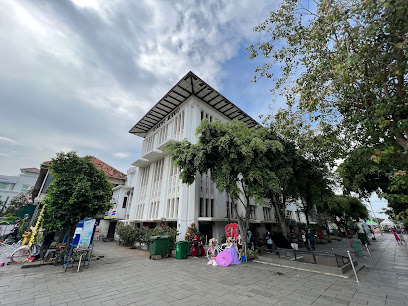
Wisata Kota Tua Jakarta
Explore Kota Tua Jakarta, a captivating blend of history, culture, and architecture in Indonesia's bustling capital, perfect for tourists seeking a unique experience.
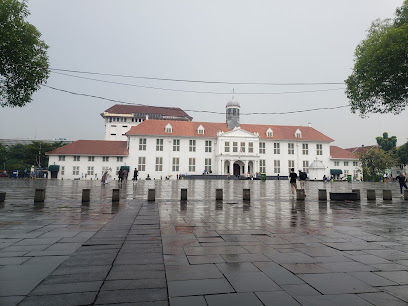
Selamat Datang Monument
Explore the Selamat Datang Monument, an iconic symbol of hospitality in Jakarta, where culture and history blend in a vibrant urban setting.

Museum Taman Prasasti
Explore the rich history of Jakarta at Museum Taman Prasasti, home to exquisite tombstones and cultural artifacts in a serene garden setting.
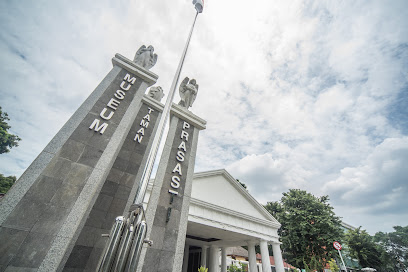
Jembatan Kota Intan
Discover the charm of Jembatan Kota Intan, a historical bridge in Jakarta that offers rich cultural insights and stunning views along the Ciliwung River.
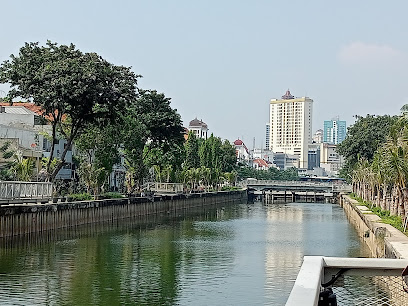
Fatahillah Old Town Museum
Explore Jakarta's history at the Fatahillah Old Town Museum, where rich cultural heritage meets captivating exhibits in a charming colonial setting.
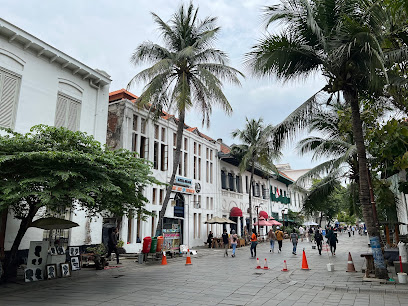
Gedung Candra Naya
Discover the captivating stories of Jakarta's past at Gedung Candra Naya, a local history museum nestled amidst modernity.
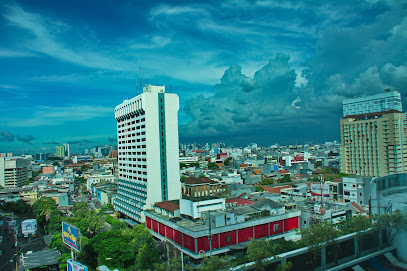
Monumen Jalur Trem
Discover the historical significance of Monumen Jalur Trem, a testament to Jakarta's rich transportation heritage nestled in the vibrant Kota Tua.
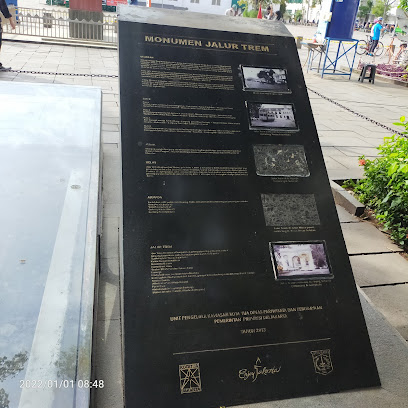
Yuyun Palace
Explore Yuyun Palace, West Jakarta's enchanting historical landmark, where elegance meets rich cultural heritage, creating a unique travel experience.
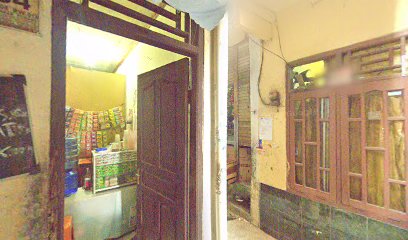
Unmissable attractions to see
Taman Fatahillah
Explore Taman Fatahillah, a historical gem in Jakarta that blends culture, heritage, and vibrant activities in a picturesque setting.
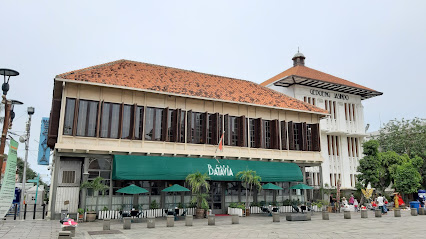
Bundaran HI
Discover the vibrant heart of Jakarta at Bundaran HI, where culture, cuisine, and iconic architecture converge in a stunning urban landscape.
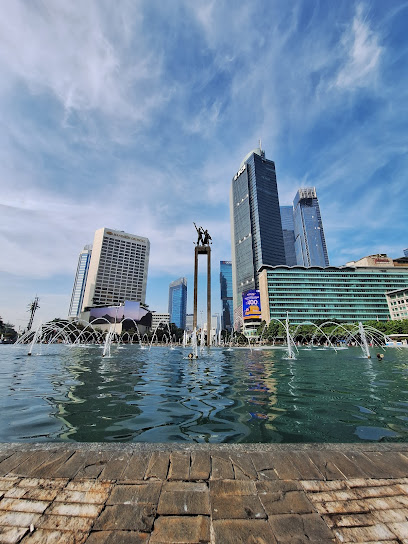
Essential places to dine
Café Batavia
Experience the rich flavors and historical charm at Café Batavia – Jakarta's premier fine dining destination.
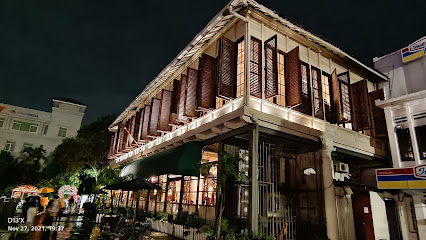
Social House
Experience exquisite dining at Social House in Central Jakarta - where modern cuisine meets vibrant ambiance.
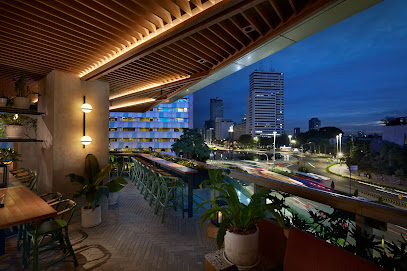
Kembang Goela Restaurant
Discover the essence of Indonesian cuisine at Kembang Goela Restaurant, where traditional flavors meet modern elegance in Jakarta.
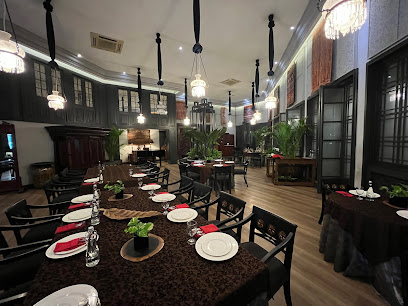
La Brasserie Restaurant
Discover the sophisticated flavors of Indonesia and beyond at La Brasserie Restaurant in Jakarta – where culinary artistry meets elegance.
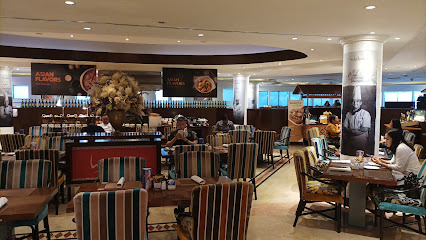
Harum Manis Restaurant
Experience the essence of Indonesian cuisine at Harum Manis Restaurant in Jakarta - where tradition meets modern dining.
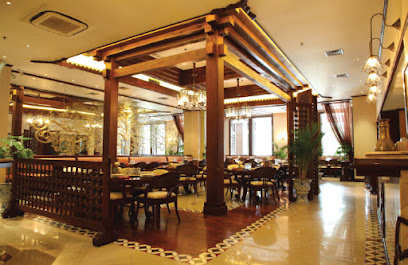
Table8
Experience exquisite Cantonese cuisine at Table8 in Jakarta - where culinary artistry meets luxurious dining.
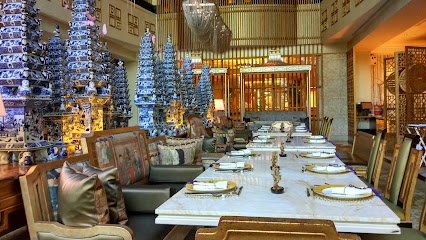
PA.SO.LA Restaurant
Discover exquisite buffet dining at PA.SO.LA Restaurant in Jakarta's Ritz-Carlton - where luxury meets culinary artistry.
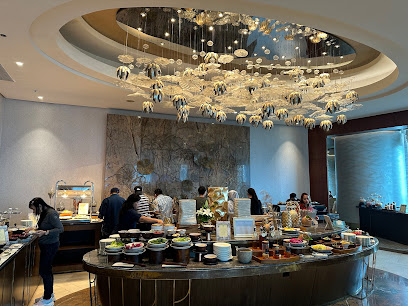
AMUZ Gourmet Restaurant
Experience culinary artistry at AMUZ Gourmet Restaurant in South Jakarta - where fine dining meets exceptional service.
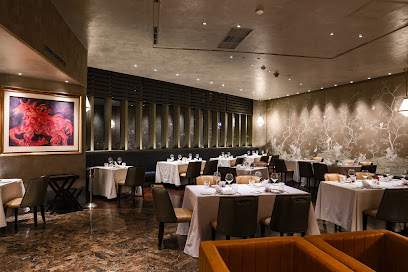
Altitude Grill
Experience unparalleled dining at Altitude Grill, where exquisite steaks meet breathtaking views in Jakarta's skyline.
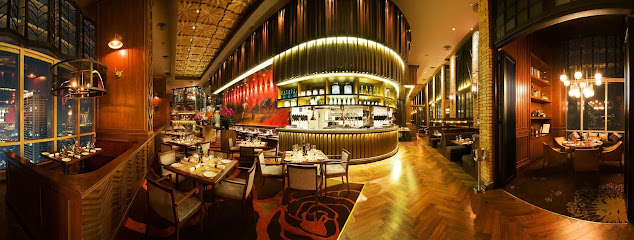
Koba Romantis & Bakmie NN
Discover Koba Romantis & Bakmie NN - A delightful fusion of bubble tea and noodles awaits you in the heart of Jakarta.
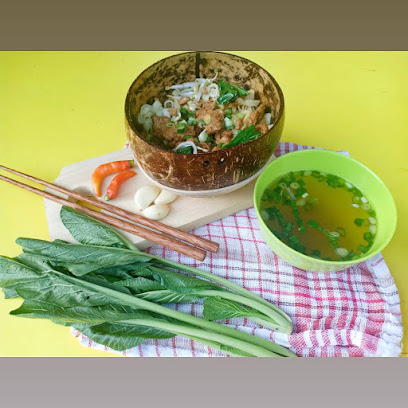
Markets, malls and hidden boutiques
Thamrin City
Discover Thamrin City, a bustling shopping mall in Central Jakarta, where local charm meets international flair in a vibrant retail experience.
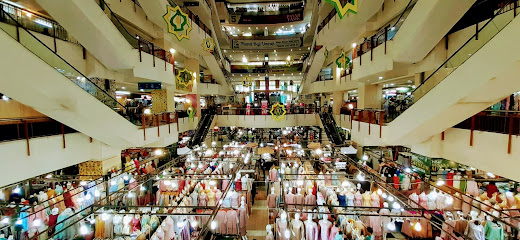
Grand Indonesia West Mall
Experience luxury shopping, diverse dining, and vibrant entertainment at Grand Indonesia West Mall, Jakarta's premier shopping destination.
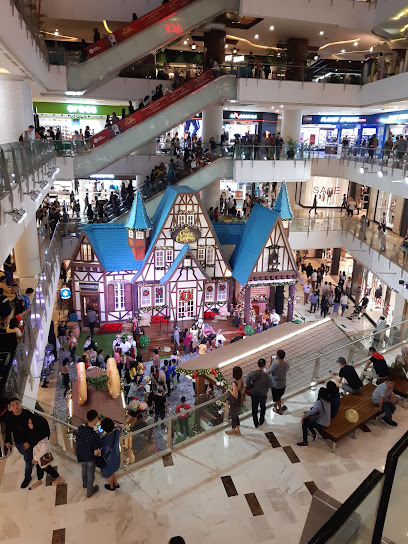
HM8 Streetwear
Explore HM8 Streetwear in West Jakarta for the latest urban fashion trends, local designer pieces, and a unique shopping experience that reflects the city's vibrant culture.
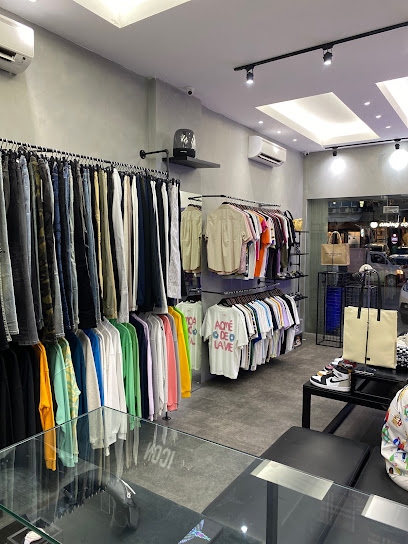
Beatrice Clothing
Discover fashionable and stylish plus-size clothing at Beatrice Clothing in West Jakarta, a must-visit for all fashion enthusiasts.
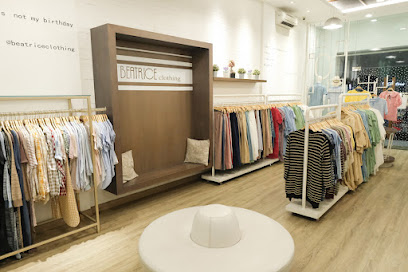
Kick Andy Store
Explore the vibrant culture of Jakarta through unique gifts and local treasures at Kick Andy Store, a must-visit gift shop in West Jakarta.
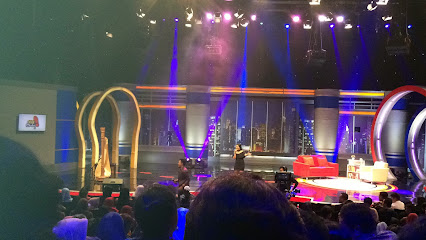
Ogell shop
Explore Ogell Shop in Jakarta for unique women's clothing, blending contemporary styles with traditional charm in a vibrant shopping atmosphere.
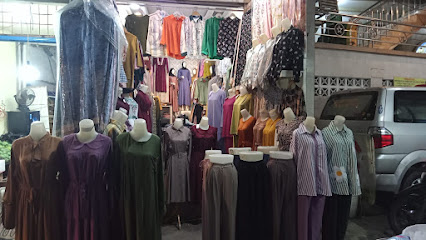
GOOD THINGS FOR SELL
Explore the vibrant culture of Jakarta through unique souvenirs and local products at Good Things for Sell.
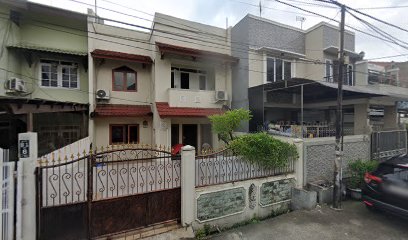
Gift Shop
Explore Jakarta's Gift Shop for unique souvenirs, handcrafted treasures, and a taste of Indonesian culture in every corner.

Toko
Explore Toko, a delightful gift shop in Grogol, where unique Indonesian treasures and local crafts await your discovery.
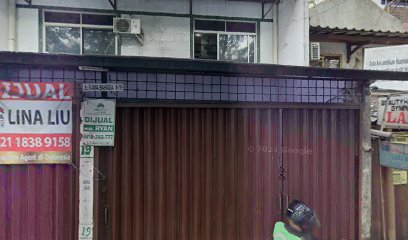
firgawn_store
Discover unique Indonesian gifts at Firgawn Store in West Jakarta, where culture meets charm in an unforgettable shopping experience.
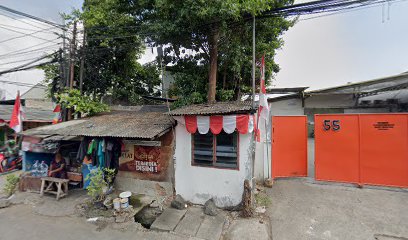
Essential bars & hidden hideouts
Lucy In The Sky Spark
Experience Jakarta's skyline from above at Lucy In The Sky Spark, a premier rooftop bar blending stunning views and exquisite cocktails.
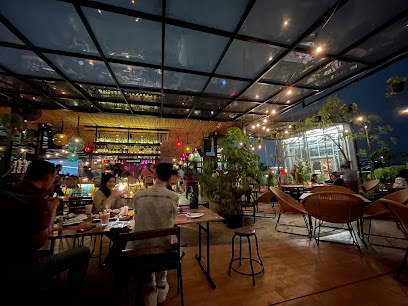
Double Doors
Discover Double Doors in Jakarta, where delicious food, live music, and a vibrant atmosphere combine for an unforgettable night out.
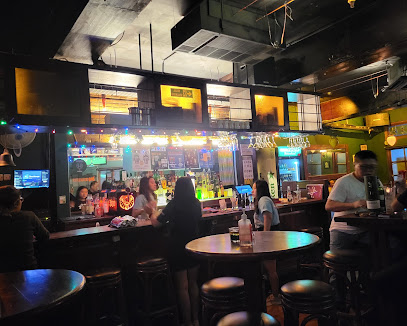
CJ’s Bar
Experience Jakarta's nightlife at CJ’s Bar, where live music meets exquisite cocktails in a luxurious setting at Hotel Mulia.
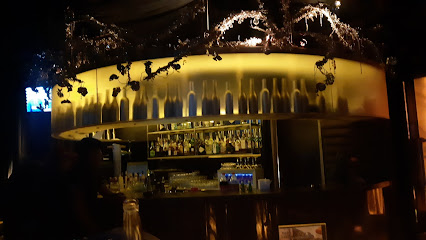
ROYAL
Discover the vibrant nightlife at ROYAL, a premier bar and nightclub in Jakarta offering electrifying music and a lively atmosphere.
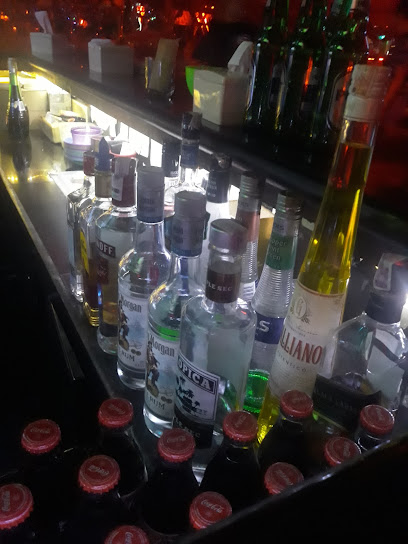
B.A.T.S. Bar and Restaurant
Experience Jakarta's vibrant nightlife and indulge in exquisite grill cuisine at B.A.T.S. Bar and Restaurant, located in the luxurious Shangri-La.
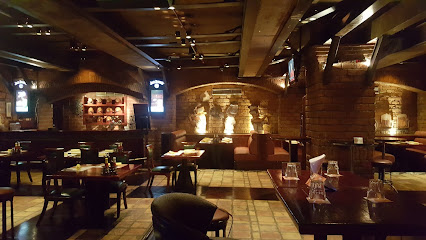
STARMOON BAR
Discover the vibrant nightlife of Jakarta at STARMOON BAR, where cocktails and music create the perfect evening atmosphere.
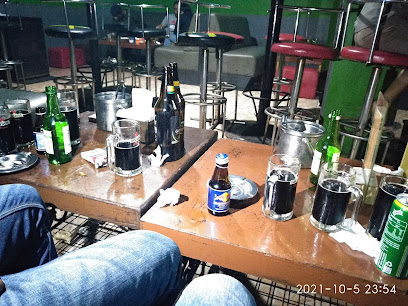
XYZ DISTRICT
Experience the lively atmosphere of XYZ District, where fine beers, delicious food, and unforgettable moments await in West Jakarta’s vibrant beer garden.
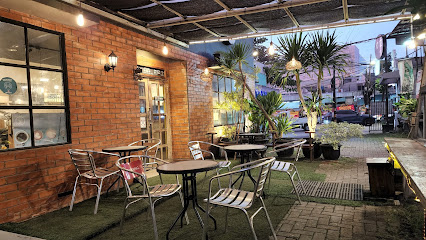
Black Pond Tavern
Experience the vibrant nightlife at Black Pond Tavern, Jakarta's cozy bar offering a diverse drink selection and a welcoming atmosphere for tourists.
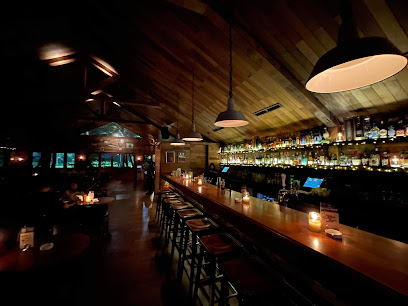
Artoz Bar
Experience the magic of live jazz at Artoz Bar, South Jakarta's premier lounge for music lovers and cocktail enthusiasts.
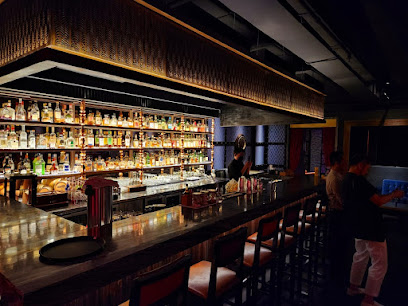
Pitstop Bar & Lounge
Discover the vibrant spirit of Jakarta at Pitstop Bar & Lounge, where locals and tourists gather for drinks, live music, and unforgettable experiences.
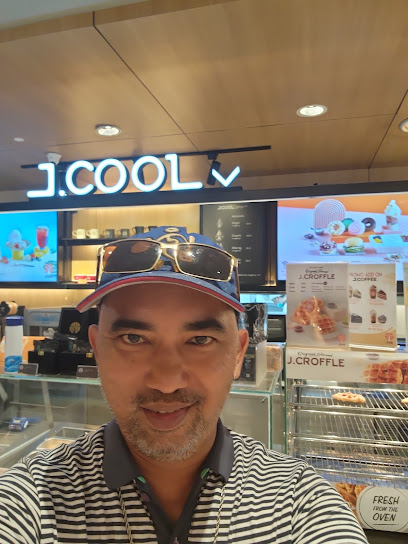
Local Phrases
-
- HelloHalo
[hah-loh] - GoodbyeSelamat tinggal
[seh-lah-maht ting-gahl] - YesYa
[yah] - NoTidak
[tee-dahk] - Please/You're welcomeSilakan
[see-lah-kahn] - Thank youTerima kasih
[teh-ree-mah kah-see] - Excuse me/SorryMaaf
[mah-ahf] - How are you?Apa kabar?
[ah-pah kah-bahr] - Fine. And you?Baik. Dan kamu?
[bah-eek dahn kah-moo] - Do you speak English?Apakah Anda bisa berbahasa Inggris?
[ah-pah-kah ahn-dah bee-sah buhr-bah-hah-sah eeng-grees] - I don't understandSaya tidak mengerti
[sah-yah tee-dahk muhng-ehr-tee]
- HelloHalo
-
- I'd like to see the menu, pleaseBoleh saya lihat menu, terima kasih
[boh-leh sah-yah lee-haht meh-noo teh-ree-mah kah-see] - I don't eat meatSaya tidak makan daging
[sah-yah tee-dahk mah-kahn dah-yahng] - Cheers!Selamat minum!
[seh-lah-maht mee-noom] - I would like to pay, pleaseSaya ingin membayar, terima kasih
[sah-yah een-geen muhm-bah-yahr teh-ree-mah kah-see]
- I'd like to see the menu, pleaseBoleh saya lihat menu, terima kasih
-
- Help!Tolong!
[toh-lohng] - Go away!Pergi!
[pehr-gee] - Call the Police!Panggil polisi!
[pahng-geel poh-lee-see] - Call a doctor!Panggil dokter!
[pahng-geel dohk-tehr] - I'm lostSaya tersesat
[sah-yah tehr-suh-saht] - I'm illSaya sakit
[sah-yah sah-keet]
- Help!Tolong!
-
- I'd like to buy...Saya ingin membeli...
[sah-yah een-geen muhm-buh-lee] - I'm just lookingSaya hanya melihat
[sah-yah hahn-yah meh-lee-haht] - How much is it?Berapa harganya?
[buh-rah-pah hahr-gahn-yah] - That's too expensiveItu terlalu mahal
[ee-too teh-rah-lah mah-hahl] - Can you lower the price?Bisa diturunkan harganya?
[bee-sah dee-too-roon-kahn hahr-gahn-yah]
- I'd like to buy...Saya ingin membeli...
-
- What time is it?Jam berapa sekarang?
[jahm buh-rah-pah suh-kah-rahn] - It's one o'clockJam satu
[jahm sah-too] - Half past (10)Setengah (sepuluh)
[seh-tehn-gah (suh-poo-looh)] - MorningPagi
[pah-gee] - AfternoonSiang
[syah-ng] - EveningSore
[soh-reh] - YesterdayKemarin
[keh-mah-reen] - TodayHari ini
[hah-ree ee-nee] - TomorrowBesok
[beh-sohk] - 1Satu
[sah-too] - 2Dua
[doo-ah] - 3Tiga
[tee-gah] - 4Empat
[em-paht] - 5Lima
[lee-mah] - 6Enam
[eh-nahm] - 7Tujuh
[too-joo] - 8Delapan
[deh-lah-pahn] - 9Sembilan
[sehm-bee-lahn] - 10Sepuluh
[suh-poo-looh]
- What time is it?Jam berapa sekarang?
-
- Where's a/the...?Dimana...
[dee-mah-nah] - What's the address?Alamatnya dimana?
[ah-lah-maht-nyah dee-mah-nah] - Can you show me (on the map)?Bisa tunjukkan (di peta)?
[bee-sah toon-joo-kahn (dee peh-tah)] - When's the next (bus)?Kapan yang berikutnya (bis)?
[kah-pahn yahng buh-roo-keet-nyah (bees)] - A ticket (to ....)Tiket (ke ....)
[tee-keht (keh ....)]
- Where's a/the...?Dimana...
History of West Jakarta
-
West Jakarta, known as Batavia during the Dutch colonial period, was established in the 17th century as a key trading port. The Dutch East India Company (VOC) built a fortified city, which became the center of commerce and administration in the region, shaping the cultural landscape with its European architecture and urban planning.
-
Through the 19th and early 20th centuries, West Jakarta emerged as a melting pot of cultures, with Chinese, Arab, and Javanese influences intermingling. This cultural diversity is reflected in the architecture, cuisine, and festivals celebrated in the area, including the vibrant Chinese New Year celebrations and traditional Javanese ceremonies.
-
During World War II, West Jakarta experienced significant upheaval under Japanese occupation from 1942 to 1945. The Japanese enforced strict control over the population, leading to widespread hardship. This period left a profound impact on the local populace, shaping their post-war identity and resilience.
-
After Indonesia declared independence in 1945, West Jakarta became a focal point for urban growth and development. The influx of migrants from other parts of Indonesia contributed to rapid urbanization. Important landmarks such as the National Monument were built during this era, symbolizing the new nation's aspirations.
-
In recent decades, West Jakarta has faced challenges related to urbanization, including traffic congestion, pollution, and inadequate infrastructure. However, initiatives aimed at revitalizing public spaces and improving transportation networks are underway, reflecting the region's dynamic and evolving nature in the context of Jakarta's rapid growth.
West Jakarta Essentials
-
West Jakarta is well-connected to other parts of the city. You can reach it by using the TransJakarta bus service, which has dedicated lanes and stops throughout the neighbourhood. The nearest major train station is Jakarta Kota Station, which is accessible via the KRL Commuter Line from various parts of Jakarta. Taxis and ride-hailing services like Gojek and Grab are also popular options for getting to West Jakarta from other neighbourhoods.
-
West Jakarta is served by a network of public transportation options, including the TransJakarta bus system, which is efficient and affordable. The KRL Commuter Line also services the area, making it easy to travel to other parts of Jakarta. For a more local experience, consider renting a bicycle to explore the neighbourhood. However, be aware that traffic can be heavy, so use caution while cycling.
-
West Jakarta is generally safe for tourists, but it is wise to stay vigilant, especially in crowded areas. Areas such as Glodok and some parts of Kota Tua may experience petty crime, including pickpocketing. Always keep your belongings secure and avoid displaying expensive items. It's advisable to avoid walking alone late at night in less populated areas.
-
In case of emergencies, dial 112 for police, fire, or medical assistance in Indonesia. Familiarise yourself with the locations of nearby hospitals and clinics. It is wise to carry a copy of your insurance information and local emergency numbers. For minor health issues, pharmacies are available throughout West Jakarta, where you can find over-the-counter medications.
-
Fashion: Do dress modestly, especially when visiting religious sites. Avoid overly revealing clothing. Religion: Do respect local customs and traditions, and cover your head when entering mosques. Public Transport: Do give up your seat to the elderly and disabled. Don’t eat or drink on public transport. Greetings: Do greet people with a friendly smile or a nod. Avoid overly familiar gestures unless you know the person well. Eating & Drinking: Do try local food and be open to sharing meals. Don’t refuse food offerings, as it may be seen as impolite.
-
To experience West Jakarta like a local, visit the vibrant markets and street food stalls, particularly in Glodok for Chinese cuisine. Engage with locals by participating in community events or festivals. For a unique experience, explore the historic sites in Kota Tua, where you can enjoy the colonial architecture and local art galleries. Don’t hesitate to try traditional beverages like kopi tubruk (Indonesian coffee) at local cafes.
Nearby Cities to West Jakarta
-
Things To Do in Bandung
-
Things To Do in Semarang
-
Things To Do in Yogyakarta
-
Things To Do in Poon Saan
-
Things To Do in Flying Fish Cove
-
Things To Do in Drumsite
-
Things To Do in Settlement
-
Things To Do in Greta Beach
-
Things To Do in Surabaya
-
Things To Do in Sentosa
-
Things To Do in East Coast Park
-
Things To Do in Marina Bay
-
Things To Do in Chinatown
-
Things To Do in Clarke Quay
-
Things To Do in Bugis













